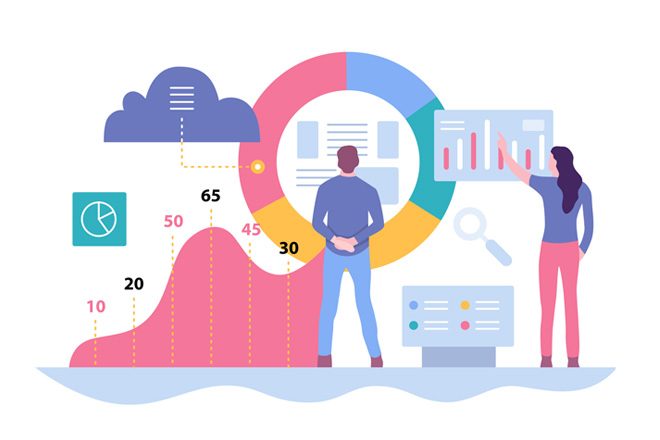It’s obvious to conclude that humanity doesn’t work. Our purpose in this world seems unclear and we have stumbled from century to century without direction or reason. Like a rudderless ship cast into the vast oceans, we have tried many ideas over several thousand years and none have delivered peace, purpose or paradise.
Until the very recent history, our ability as a species to influence humanity’s direction was limited by our lack of understanding and our slender resources to implement ideas at scale. We only realised just a few hundred years ago that we were not the centre of the universe and in fact we were just one planet of many, spinning round one star of many, in a galaxy of many. However, in the last 100 years we have developed the means to impact every human on the earth and the environment in which we all live.
And what have we done with that ability?
In recent years the idea of benevolence and altruism have become popular and it would be easy to allow yourself to be convinced that the world was changing for the better
A modern day wake up call
More than 10 million people have contracted COVID-19. Half a million have died. 20 million people in the US lost their jobs in a single month. The UK economy contracted by more than 20 percent in April. The short term costs of the pandemic have been arrant in the extreme.
Even the most optimistic predictions expect the global economy to shrink, supply chains to be disrupted and mental wellbeing to suffer dramatically – the consequences of this unprecedented disease will have had a profound effect on our children, our society, and our very way of life.
And yet the impact has not cut deep enough to provoke change.
A brief history of the human value system
Since the hominin lineage diverged some 500,000 years ago, the most intelligent and sophisticated entities on earth have waged war, pillaged, persecuted, and acted with a singular and collective greed. The achievements of the previous 499,900 years have been surpassed in the last century through our development of technology which has opened up new means of subjugating the less fortunate and expediting the anthropic destruction of our environment.
It’s quite an achievement.
Early humanity lived a subsistent existence. It was every man for himself and those that could provide for themselves survived and those that couldn’t perished. As individuals the true nature of Darwinism existed; if you had something that I needed and I was strong enough to take it from you, then I did. If the roles were reversed and I had something you wanted but was too weak to stop you, then I lost what I had.
We lived that way for millennia until the first agricultural revolution (Neolithic Revolution), just over 10,000 years ago when we learned the wisdom of creating settlements, dividing labour and working collectively. Humans evolved from being hunter-gatherers to settlers and developed a range of rudimentary societal structures that paved the way for modern humanity.
In the post-Neolithic period we didn’t change our ways much. Instead, settlements battled with other settlements, villages plundered other villages and the strongest cohorts survived while the weakest succumbed. A system of oral law and blood feud prevailed where unwritten rules of engagement and brutal ‘eye-for-an-eye’ justice existed. It wasn’t until Drako (the origin of Draconian used to describe overbearing and unforgiving rules), the first legislator of ancient Greece in c.650BC, that humans abided by any kind of prescribed laws.
For the next thousand years or so, the Romans refined ideas concerning justice and righteousness with barbarous consequences. The Romans dominated the imperial stage for centuries and their legacy had far reaching and lasting influence. Concepts and ideas born in the Roman Republic formed the backbone for more modern ideologies and its influence on language, religion, art, economics, philosophy, engineering, governance and law-making could be felt around the globe long after the western empire crumbled at the hands of its Germanic conquerors.
The age of War
Between the 5th and 14th century, wars raged across Europe and Asia in the vacuum left by the Roman Empire. The period is often referred to as the Dark Ages as societal structures all but disappeared and swarms of warring factions bludgeoned each other into oblivion. The Gothic wars; The Persian War; The Moorish Wars; the An Lushan Rebellion; The Crusades, The Mongol conquests; the Hundred Years War, and the Conquests of Timur – to name just a few. In total more than 100 wars cost the lives of some 400 million people – and this was all long before the Age of Discovery when the Spanish, Portuguese, and Chinese really sharpened their game in terms of bloody conquests and brutal dynasty battles.
Our own Colonial past is equally distasteful; the English were at the heart of the Atlantic slave trade and by the early twentieth century the British Empire ruled more than a quarter of the world’s population and controlled roughly 30 percent of all land. Our forefathers built an empire which still to this day was the largest and most dominant dynasty the world has ever known.
Modern history paints an equally bleak picture. I see no point in recounting the wars that have raged in our living memory but most estimates suggest that more than 1 billion people have lost their lives as a direct consequence of war with our most recent World War topping out an abhorrent list and claiming 80 million lives alone.
As a species we are not very good at learning lessons.
Our efforts to tackle the world’s biggest challenges have not amounted to much. Most are acts which ease the conscience or stick a plaster on a gaping wound
The birth of purpose
In recent years the idea of benevolence and altruism have become popular and it would be easy to allow yourself to be convinced that the world was changing for the better. However, we are a fickle species and all too often our best intentions soon switch focus to the next new thing and our ability to make consistent and lasting change is questionable. We all remember Live Aid in 1985 when the world stopped to take notice of the famine in Ethiopia. It was the first global event that drew attention to the plight of the less fortunate and beamed it straight into our living rooms. At the time it was profound and felt like a seminal moment but in just a few short decades we have all but forgotten the extraordinary hardship that ravages many parts of the African continent, and if the current crisis in The Yemen is anything to go by, very little lasting progress has been made to end starvation – a truly sad indictment on a sophisticated and prosperous society.
Our efforts to tackle the world’s biggest challenges have not amounted to much. Most are acts which ease the conscience or stick a plaster on a gaping wound. Wealthy individuals have congratulated themselves for philanthropic endeavours, enterprises have pushed purpose to the top of their marketeer’s agenda, and many of us have kidded ourselves that we were doing our bit by occasionally remembering to separate the recycling.
Global enterprises promulgate their mission and purpose statements which set out courageous ideals and seek to convince us that if we buy a certain brand of trainers we are simultaneously saving a polar bear or helping to plant a tree somewhere. Big businesses have recognised the power of superficial purpose and the marketeers have exploited our weak sense of responsibility and a deep lack of conviction.
We have been so busy becoming richer and more fulfilled by watching big TVs, going on extravagant holidays and driving faster cars that we hadn’t noticed the token donations we make to Water Aid or Médecins Sans Frontières were not changing the world.
Some would say strides have been taken. In the context of famine, child poverty, equality and environmental balance I would say that we are continuing on a downwards spiral rather than making overdue gains.
The idea of purpose and the question of why?
The idea of purpose is supposed to answer a simple question – why? Purpose means ‘the reason for which something is done or created’ but if you challenge a global brand to go deeper into their value system you really don’t have to scratch too hard until you uncover the truth.
It’s not always that brands are disingenuous; I simply think they haven’t really uncovered the true nature of why? Ask the question ‘why?’ at the end of any explanation regarding purpose and the responder soon runs aground.
I’m not pouring cold water on every charitable endeavour because clearly many of the efforts that businesses and individuals make have an impact on some people. And I’m certainly not advocating that we should stop trying to do good – all efforts to improve quality of life and the environment should be applauded and supported but it is about time we all started to ask, to what ends?
I said at the beginning of this narrative that humanity was like a rudderless ship and surely that is the issue that has to be addressed somehow? For all the good that we are doing in the micro we aren’t making any impact on the macro. Despite our increased wealth, longer life expectancy and advances in science, medicine and exploration – have we actually made the world a better place to live or have our endeavours achieved very little?

The coronavirus wake-up call
The COVID-19 pandemic has been the first global-scale event that many of us will have lived through, save for those old enough to remember the Second World War. The consequences of COVID-19 have pervaded every aspect of our lives and inadvertently afforded us all time to think and reflect. Whilst the death toll has been tragic I believe this unwelcome epidemic could present the world with an unexpected opportunity.
But will we take it?
When have we ever had the chance to take a breath and really think about our purpose in life? When have we ever been afforded the time and space to think about why we are doing things rather than simply focussing on what we are doing?
As Winston Churchill famously said “never let a good crisis go to waste” and although it would be remiss to categorise the coronavirus crisis as ‘a good crisis’ the sentiment in the statement remains.
It is precisely in these moments of turmoil that our future history and direction of travel is determined. The ‘New Deal’ was conceived in the middle of the Great Depression in 1930s America and laid the foundations for a new way of life invoked by ‘the 3Rs’ programme; the Beveridge Report which instituted the welfare state in the UK was written as German bombers laid waste to the London skyline; and the Universal Declaration of Human Rights was written shortly after the end of World War II as society came to terms with many of the atrocities that had befallen so many.
However, crisis alone cannot provoke change. It is the values and ideas of society and those that have been affected which pave the way for new thinking in the aftermath of a catastrophe.
Milton Friedman, the Nobel prize winning economist said: “Only a crisis – actual or perceived – produces real change. When that crisis occurs, the actions that are taken depend on the ideas that are lying around. That, I believe, is our basic function: to develop alternatives to existing policies, to keep them alive and available until the politically impossible becomes the politically inevitable.”
COVID-19 has struck at a time when ‘the ideas lying around’ are self evident. Concepts concerning the environment and equality that were in the periphery just a few decades ago are now mainstream thinking and yet we haven’t managed to convert this reasoning into lasting action. The gap between those who are affluent and those in poverty is widening, not shortening. The damage we are doing to our environment is accelerating, not slowing. And the inequality between humans based solely on the colour of skin is still a stain on the fabric of humanity. The Black Lives Matter campaign has once again brought the issue of racial inequality squarely into focus and forced us to examine whether we are satisfied with the progress we have made into dealing with a fundamental flaw in the code of humanity. Whilst the civil unrest which has flooded the streets of America and many European cities is not to be condoned, a quote from Martin Luther King Jr very poignantly encapsulates one of the other ‘ideas lying on the ground’ when he said: “A riot is the language of the unheard.”
Many of the issues that contribute to our dysfunctional existence do not have an obvious solution. Like a bad ERP solution, humanity has stored up centuries of technical debt that cannot simply be undone. Trying to unravel injustice and flawed thinking is a complex problem that requires sustained effort, considerable time and radical thinking.
But change can happen?
Take the cerebrations of Thomas Piketty (mentioned elsewhere in this issue as an inspiration to Ben Brabyn and the GenieShares concept) whose radical ideas about wealth and income inequality were rubbished at first yet are now considered to be underpinning and guiding logic since his book, Capital in the Twenty-First Century, became a best seller.
Greta Thunberg, aged just 17, has done more to propel climate change up the corporate and political agenda in 18 months than Greenpeace has achieved in its 60 year history. Her ideas in themselves weren’t radical but the way that she mobilised a global movement demonstrated that it is possible to make progress on seemingly insurmountable issues with a different approach.
Like a bad ERP solution, humanity has stored up centuries of technical debt that cannot simply be undone
Is it possible to set a new direction for humanity?
For the first time in our existence we have the means to influence humanity at scale and at the centre of that influence is the technology we have developed in the last 25 years.
Today, the most powerful brands in the world are technology companies. The FAAMG brands (Facebook, Apple, Amazon, Microsoft and Google) have a deep and personal relationship with each and every one of us and these megabrands are uniquely placed to influence the course for humanity. Never before have people been so ‘connected’ and it is the technology that spans between us that makes those connections. Not always used for good, we have seen how fake news and other spurious uses of technology have had huge impacts on governments, financial markets and entire countries. If we can use the power of these technologies in such a negative way surely it can’t be beyond the whit of man to use them for good?
The role of other global brands should not be underestimated either; whether or not an ERP vendor or technology consultancy can actually influence humanity at scale is debatable. But what we can all do is embed purpose and ideas that are aligned to advancing humanity and charting a course towards the kind of world we would like to live in if we had the chance to start over.
Coronavirus may have been an unwelcome and uninvited guest but we all have a duty to be grateful for the opportunities it has presented. In many ways we are incredibly fortunate that the crisis we have just faced was so benign. Imagine if it hadn’t been the case that the vast majority of people who were infected survived. How would we feel if the inconvenience of wearing face masks, not seeing loved ones and being locked down was a permanent state. Consider how much worse this could have been.
Coronavirus will not be the last crisis that we face and the lessons we learn from this very near miss may well determine our ability to survive future events. Our ability to co-operate and manage under difficult circumstances will be greatly enhanced if society is cohesive and we all feel that we are pulling in the same direction. Businesses of all types have an important role to play by creating cultures that are aligned with the best interests of humanity and the planet. Our efforts in technology should be focussed on building resilience against future attacks on our way of life and global brands of all denominations should set an example by taking purpose out of the hands of marketeers and placing it firmly in the responsibility of the CEOs.
We are less than half way through the life of our planet – if urgent action isn’t taken to address the many shortcomings of humanity’s efforts – we may not need the majority of the time that is left.





